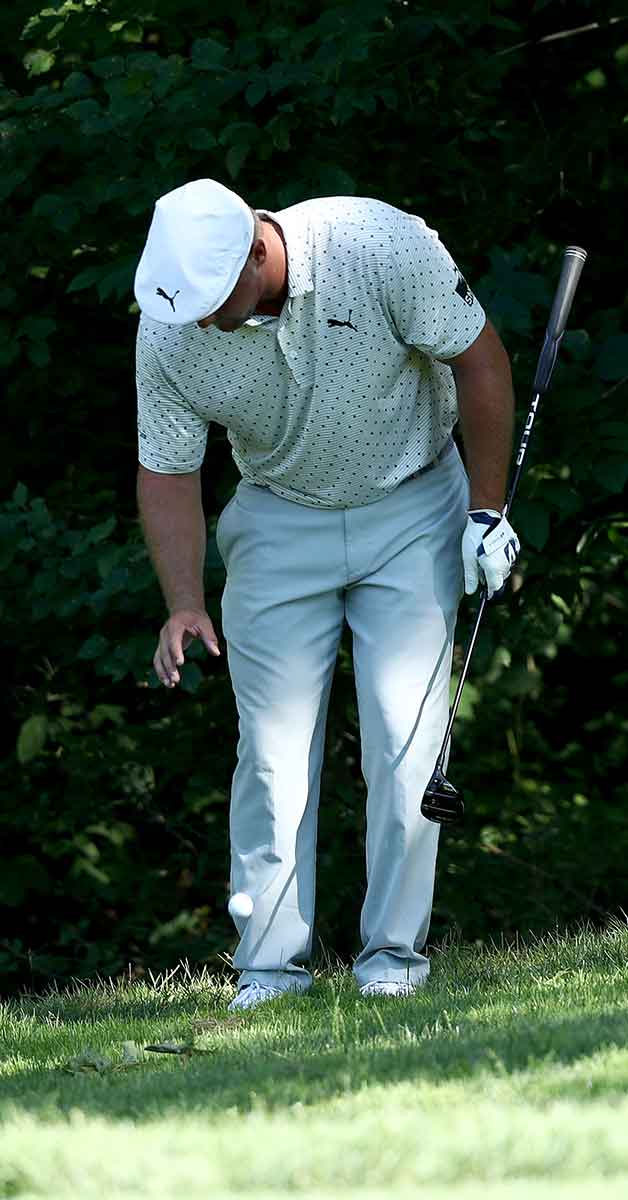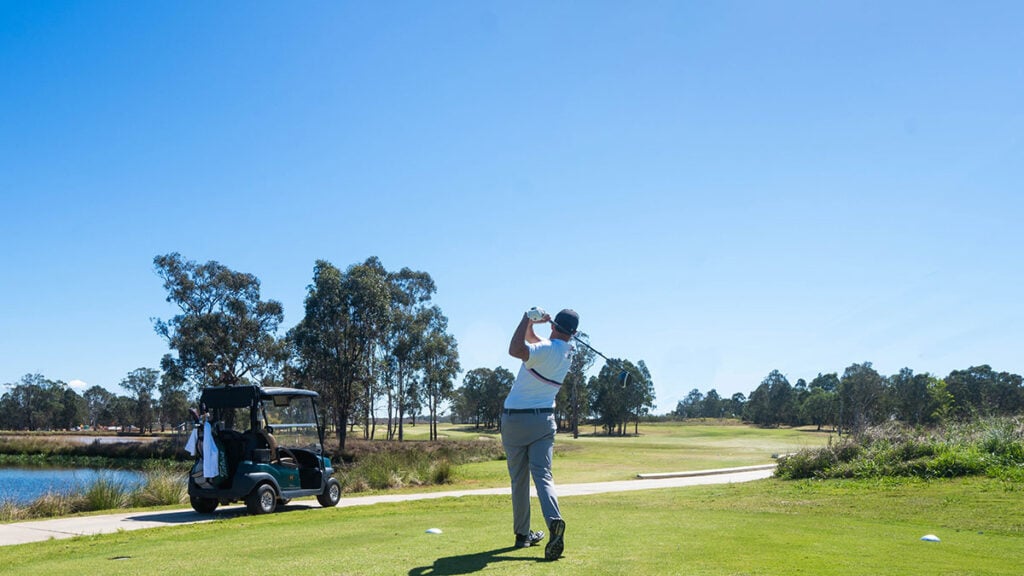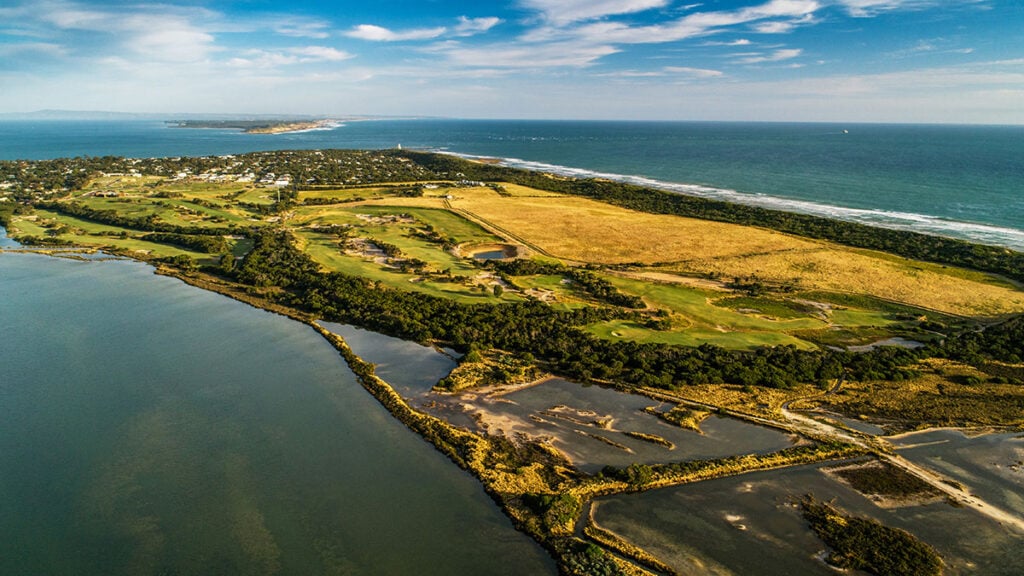Protecting more than a ‘brand’
For 10 minutes the other week, I watched the TV coverage of the PGA Tour’s Memorial tournament in complete bewilderment.
Bryson DeChambeau took a drop from a hazard and his ball nestled down in some pretty serious rough. Someone, I think it was Nick Faldo, laid out the path to the green that we (and Bryson) couldn’t see – 240 yards to carry the water through a window in the trees that was no more than a canvas of cloudy questions. But Bryson, I’m guessing, heard only the number. Once, twice, three times, it was only a number. A number that he knew he could carry, no matter the lie or the angle or the difficulty or the consequence, because he is now Bryson DeChambeau whose biggest asset is his power.
I don’t question that he was capable of the shot. But to see someone, a professional golfer near the top of professional golf’s peak, so resoundingly ignore every other facet of a shot just made my head spin. Three times he hit the exact same shot, and three times he thought he’d hit it out-of-bounds. Before he knew the third ball was OK, he asked his caddie to pass him the wedge, as it was time to lay up. Time to lay up? After three attempts?
The ensuing rules pantomime garnered more attention than the lack of decision-making that got him there. But I think Jack Nicklaus attempted to justify Bryson’s lack of logic in a similar way: he possibly has to learn the kind of golfer he is again.

Bryson has created an advantage (which is obviously impressive in the commitment it has taken) that overpowers more than just golf courses; it overpowers other elements of the golfer he was and the skills he undoubtedly had to get to the top of the game. Not just his need to hit good wedge shots or any kind of long iron, but his need to weigh things up, to strategise, to accept and limit damage, to remember there is more than this shot and this hole within this round. His need to think about more than the most direct route to the hole.
The skills that have become devalued are ironically the same skills that make Jordan Spieth the most fascinating golfer on the planet to watch and listen to, and yet have also perhaps been part of his struggles. Whatever skill it is in golf, whoever you are, the thing that makes you strong can also be your weakness. DeChambeau and Spieth show that in the most literal and figurative senses.
I occasionally wonder why it is that I’m so addicted to golf. Sometimes the triviality of it hits me; the absurdity of letting your self-worth hinge on how quickly you can get a little white ball from point A to point B. Some people might get drawn in initially for the brawn, the dominance, the testosterone-fuelled exhilaration that comes from launching a drive into the stratosphere. And it shouldn’t ever be argued that that isn’t a skill. But it’s not what makes people stay. That’s not why people long for, or play in, or watch Major championships. That’s not why the entire golf world is pining for the Open Championship that should have been at Royal St George’s this year. All of us who have been lucky enough to have been dragged into golf’s bewitching complexity, we know it’s exactly that. The complexity, and the desperate search for the peaceful moments of simplicity within it. The questions it asks, and the occasional answers that we find.
On what might seem like an odd tangent, I think it’s part of the reason I enjoyed the Rose Ladies Series so much. Most of the courses we played are world-class venues with world-class designs. A strange twist that’s come from modern equipment, technical improvements and increased physical understanding is that, generally speaking, female professional golfers hit the ball distances by which a lot of good golf courses were designed to be played. And that brings those questions to light in the most exposing of ways. I love the challenge of finding that balance between being aggressive enough to challenge in a one-day event but intelligent enough to know when a course architect is trying to suck you in and destroy the good work you’ve spent hours building.
I’ve found my motivation in the frustration, unravelling on the last few holes when it’s heightened by knowing you ticked the boxes before that. When you’ve pulled off the shots that have been offered with a tantalising beckon, taken your medicine when the inevitable mistake led you to a bunker that forced full focus on a different skillset to stay in the game. Equally, the frustration that comes from not seeing the question that was asked. Forgetting the slope to the right of the pin that a pure 4-iron catches and eventually costs you a double. Protecting yourself from the trouble, failing to recognise the severity of the trouble on the other side.
When you don’t answer the questions, you’re pissed off. When you don’t see the questions, you’re pissed off. But that’s exactly what golf has to offer; that’s exactly what makes it the maddeningly beautiful sport that it is; exactly what keeps us coming back week in, week out. I don’t think it’s possible for golf to ever lose that identity. But maybe it needs some more protecting, however that may be.
More than protecting someone’s brand, that’s for sure.
Meghan MacLaren




